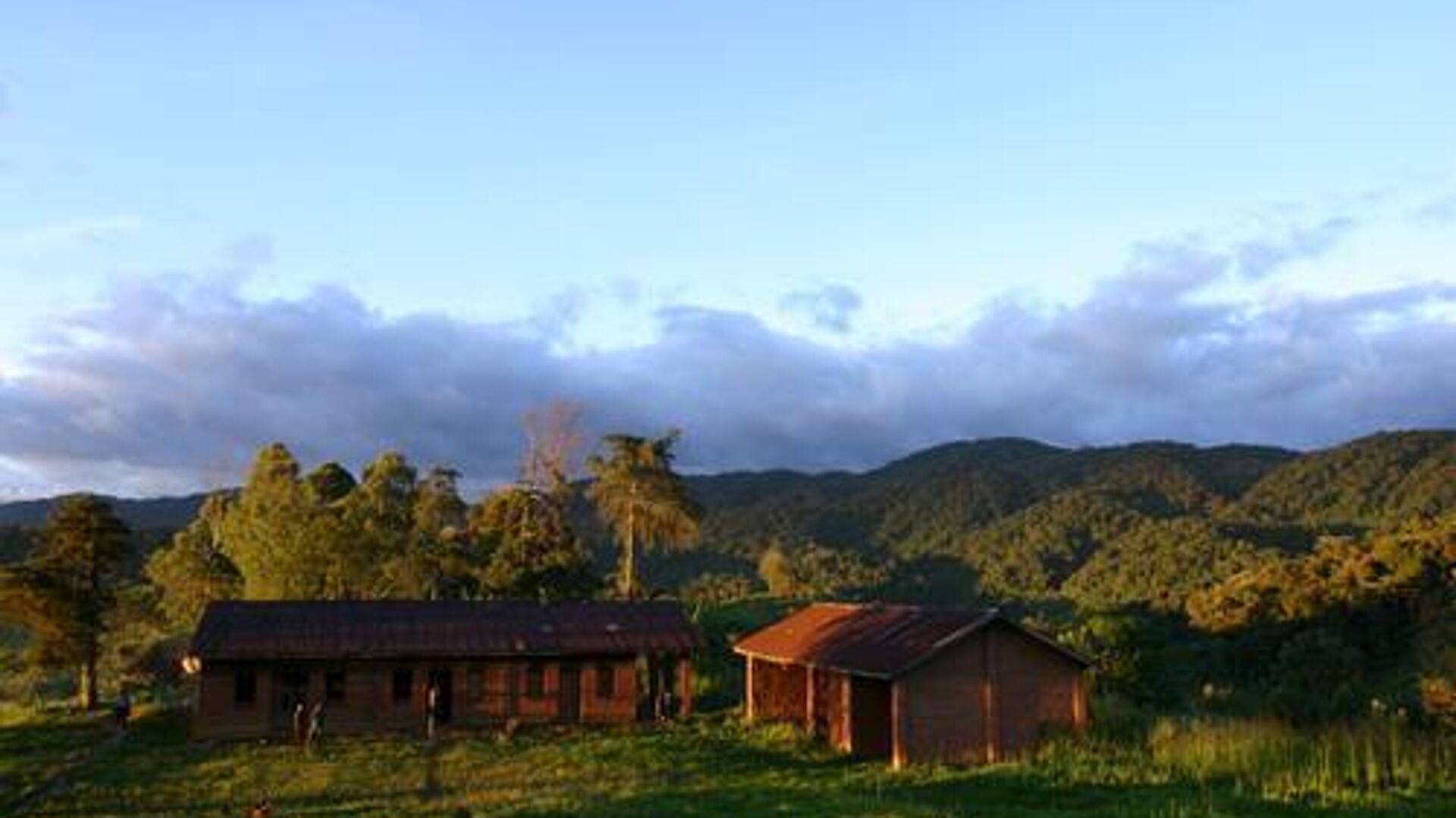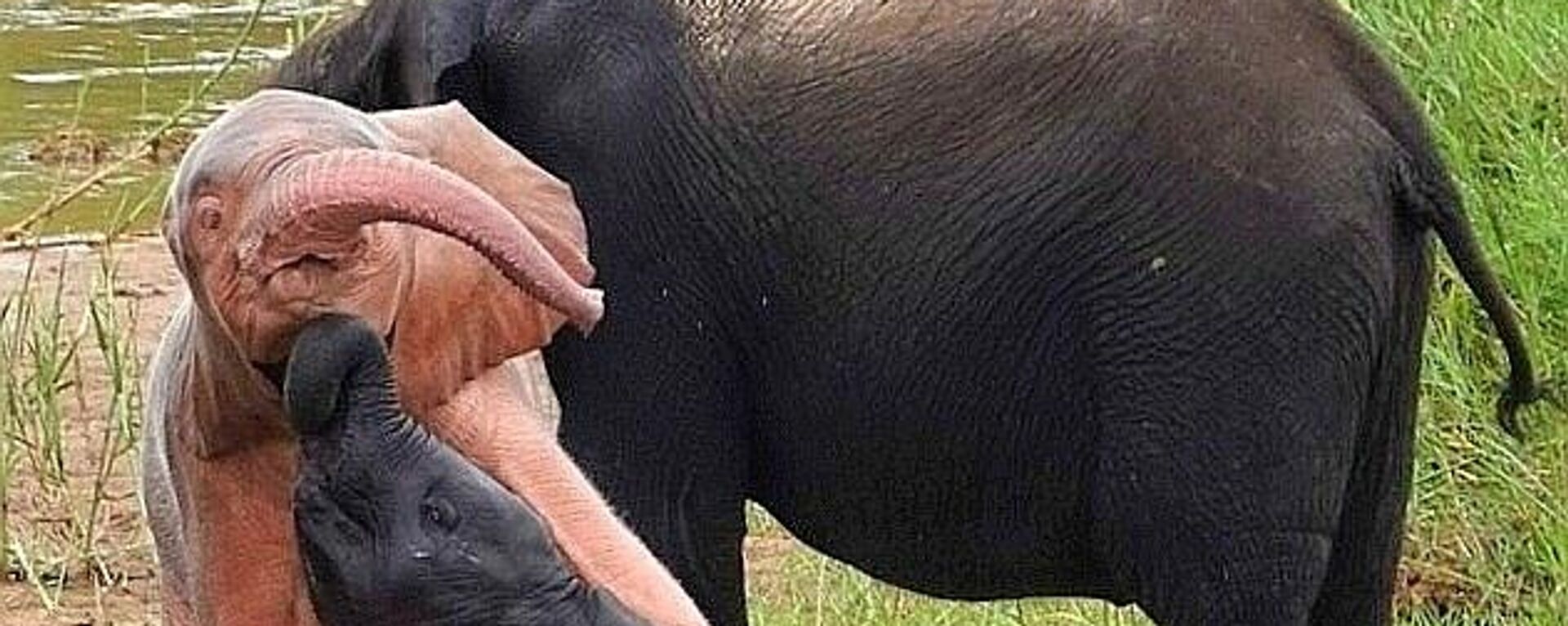https://en.sputniknews.africa/20240310/two-rare-species-previously-unseen-in-wild-for-decades-found-in-drc-reports-say-1065477224.html
Two Rare Species Previously Unseen in Wild for Decades, Found in DRC, Reports Say
Two Rare Species Previously Unseen in Wild for Decades, Found in DRC, Reports Say
Sputnik Africa
The yellow-crested helmetshrike, Prionops alberti, had been spotted the last time almost twenty years ago, while the red-bellied squeaker frog, Arthroleptis... 10.03.2024, Sputnik Africa
2024-03-10T13:16+0100
2024-03-10T13:16+0100
2024-03-10T14:39+0100
sub-saharan africa
democratic republic of the congo (drc)
species
endangered species
animals
animals' protection
environment
central africa
science
https://cdn1.img.sputniknews.africa/img/07e8/03/0a/1065478024_0:26:500:307_1920x0_80_0_0_dc12114eae5b68c07dc5a132df8bd91c.jpg
Two rare species, the yellow-crested helmetshrike, Prionops alberti, and the red-bellied squeaker frog, Arthroleptis hematogaster, which had not been seen in the wild for decades were discovered in the Itombwe Mountains in the Democratic Republic of the Congo (DRC), the media reported.A team of scientists from the University of Texas at El Paso (UTEP), guided by scientists from the DRC Centre for Research in Natural Sciences (CRSN), made the discovery, the report said.The UTEP team didn't plan to find the bird even though they assumed this could happen, the outlet noted.Harvey added that they managed to gather some valuable data about the helmetshrike, including audio recordings of its sound, photos of live birds and information about the bird's behavior.While the discovery of the bird was a pleasant surprise, in order to find the frog, the researchers conducted a thorough search.According to the report, the scientists spotted a number of these frogs, Greenbaum noted that "they’re relatively common—it’s just that nobody had been into this really remote area where they occur for a really long time."Ornithologist Harvey expressed his hope that the discovery of these rare species will shine a spotlight on this underrated region and its unique plant and animal life, getting "people on board with caring and wanting to protect that diversity."
https://en.sputniknews.africa/20240228/pretty-in-pink-extremely-rare-albino-elephant-spotted-in-south-africa-1065305708.html
democratic republic of the congo (drc)
central africa
Sputnik Africa
feedback@sputniknews.com
+74956456601
MIA „Rossiya Segodnya“
2024
Rasina Musallimova
https://cdn1.img.sputniknews.africa/img/07e7/0a/17/1063019139_0:0:646:646_100x100_80_0_0_348c74b69cf86748a53875f8148a2f85.jpg
Rasina Musallimova
https://cdn1.img.sputniknews.africa/img/07e7/0a/17/1063019139_0:0:646:646_100x100_80_0_0_348c74b69cf86748a53875f8148a2f85.jpg
News
en_EN
Sputnik Africa
feedback@sputniknews.com
+74956456601
MIA „Rossiya Segodnya“
Sputnik Africa
feedback@sputniknews.com
+74956456601
MIA „Rossiya Segodnya“
Rasina Musallimova
https://cdn1.img.sputniknews.africa/img/07e7/0a/17/1063019139_0:0:646:646_100x100_80_0_0_348c74b69cf86748a53875f8148a2f85.jpg
democratic republic of the congo (drc), species, endangered species, animals, animals' protection, environment, central africa, science
democratic republic of the congo (drc), species, endangered species, animals, animals' protection, environment, central africa, science
Two Rare Species Previously Unseen in Wild for Decades, Found in DRC, Reports Say
13:16 10.03.2024 (Updated: 14:39 10.03.2024) The yellow-crested helmetshrike, Prionops alberti, had been spotted the last time almost twenty years ago, while the red-bellied squeaker frog, Arthroleptis hematogaster, was last seen by scientists in the 1950s.
Two rare species, the yellow-crested helmetshrike, Prionops alberti, and the red-bellied squeaker frog, Arthroleptis hematogaster, which had not been seen in the wild for decades were discovered in the Itombwe Mountains in the Democratic Republic of the Congo (DRC), the media reported.
A team of
scientists from the University of Texas at El Paso (UTEP), guided by scientists from the DRC Centre for Research in Natural Sciences (CRSN), made the discovery, the report said.
The UTEP team didn't plan to find the bird even though they assumed this could happen, the outlet noted.
"We had it in the back of our minds [that we might see one], but it wasn’t one of our main targets. We just happened across it serendipitously," one of the two UTEP ornithologists, Michael Harvey, was quoted by the media as saying.
Harvey added that they managed to gather some valuable data about the helmetshrike, including audio recordings of its sound, photos of live birds and information about the bird's
behavior."Because we spent about a week of our six-week expedition in the helmetstrike's habitat observing the bird, we got the first publicly available audio recordings, and we know more about what they sound like. We got photos of live birds, and previously they were just basically described from specimens of dead birds. We got to observe them behaving and doing things in the forest, so we made some notes on their behavior and their ecology," he was cited by the outlet as saying.
While the discovery of the bird was a pleasant surprise, in order to find the frog, the researchers conducted a thorough search.
"We looked at the ground, at the leaf litter. We looked at waist height, on the plants. We searched during the day. We searched at night. We searched when it’s raining. We searched when it’s dry. And these frogs just started popping up," UTEP herpetologist Eli Greenbaum was quoted by the media as saying.
According to the report, the scientists spotted a number of these frogs, Greenbaum noted that "they’re relatively common—it’s just that nobody had been into this really remote area where they occur for a really long time."
Ornithologist Harvey expressed his hope that the discovery of these rare species will shine a spotlight on this underrated region and its unique plant and
animal life, getting "people on board with caring and wanting to
protect that diversity."



